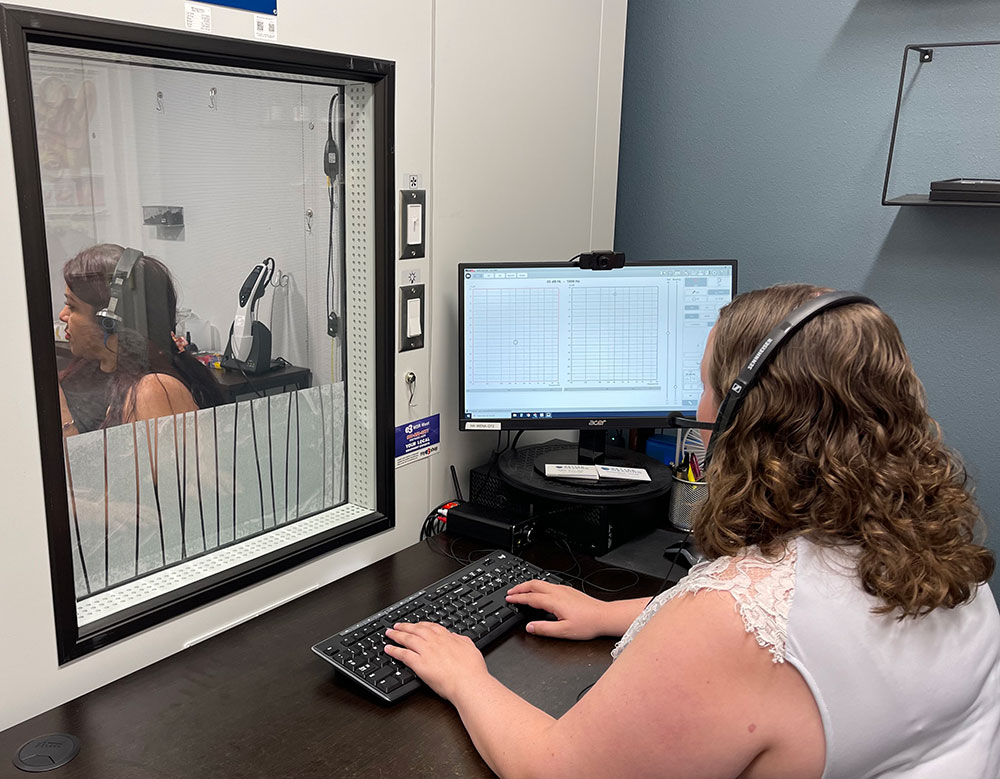Hearing Testing in Wenatchee, WA
Hearing is a vital sense that allows us to communicate, connect with others, and experience the world around us. However, hearing loss is a prevalent condition that affects millions of people globally, and it can have a significant impact on one’s quality of life. The good news is that early detection and intervention can significantly reduce the impact of hearing loss. That’s where hearing testing comes into play.
Hearing testing is a process that involves evaluating an individual’s ability to hear sounds at different frequencies and volumes. It helps to determine the degree and type of hearing loss, if present, and provides valuable insights for developing appropriate treatment plans. In this section, we will explore the importance of regular hearing testing, the benefits it offers, and how it can contribute to optimal ear health.
Hearing Testing: An Overview
Hearing testing is typically conducted by a qualified audiologist, who is a healthcare professional trained in evaluating hearing health. The assessment is performed in a soundproof booth and may involve various tests, depending on the age, medical history, and specific needs of the individual being assessed.
One of the most common tests used in hearing assessments is pure-tone audiometry, where the individual wears headphones and responds to different tones presented at various frequencies and volumes. Speech audiometry, which evaluates the individual’s ability to understand speech in quiet and in background noise, may also be conducted. Other tests, such as tympanometry, which measures the movement of the eardrum, and otoacoustic emissions (OAE) testing, which assesses the health of the inner ear, may also be included.

The Importance of Regular Hearing Testing
Regular hearing testing is crucial for several reasons. Firstly, it helps in early detection of hearing loss. Hearing loss is often gradual and can go unnoticed in its early stages. However, regular hearing assessments can detect even mild hearing loss, enabling timely intervention and treatment, which can help prevent further deterioration and preserve the individual’s quality of life.
Secondly, hearing testing is essential for monitoring the progress of hearing loss. For individuals with known hearing loss, regular assessments can track changes in hearing levels, which can guide adjustments to hearing aids or other interventions to ensure optimal hearing health.
Thirdly, hearing testing is vital for identifying the type and severity of hearing loss. There are different types of hearing loss, including conductive, sensorineural, and mixed. Conductive hearing loss may result from issues in the outer or middle ear, while sensorineural hearing loss originates in the inner ear or the auditory nerve. Mixed hearing loss is a combination of both conductive and sensorineural hearing loss. Identifying the type and severity of hearing loss is crucial for developing appropriate treatment plans tailored to the individual’s needs.
How Often Should You Get a Hearing Test?
Regular hearing tests are an important part of maintaining your overall health. For most adults, we recommend scheduling a hearing test every 2–3 years starting at age 50, even if you don’t notice any obvious changes in your hearing. If you are regularly exposed to loud environments, have a family history of hearing loss, or experience symptoms such as ringing in the ears (tinnitus), you may benefit from more frequent evaluations. Early detection allows for timely treatment options such as hearing aids from trusted brands like Widex, Phonak, Starkey, ReSound, Oticon, Unitron, or Signia, helping you preserve your hearing and quality of life.
Signs of Hearing Loss
Hearing loss can develop gradually, making it easy to overlook in its early stages. Common signs include difficulty understanding conversations in noisy environments, frequently asking others to repeat themselves, needing to turn up the TV or radio volume, or noticing that certain sounds—like birds chirping, doorbells, or phone alerts—are no longer audible. You may also feel that people are mumbling or that speech sounds muffled, especially with consonant sounds like “s,” “f,” or “th.” Recognizing these early indicators is the first step toward effective treatment and better communication with friends and loved ones.
Benefits of Regular Hearing Testing
Regular hearing testing offers numerous benefits, including:
- Early Detection of Hearing Loss: As mentioned earlier, early detection of hearing loss is critical for timely intervention, which can help prevent further deterioration and maintain better hearing health.
- Improved Treatment Outcomes: Knowing the type and severity of hearing loss allows for appropriate treatment planning. Treatment options may include hearing aids, assistive listening devices, cochlear implants, or other interventions, and early detection enables more effective management of hearing loss.
- Enhanced Communication: Untreated hearing loss can significantly impact an individual’s ability to communicate effectively, leading to social isolation, decreased quality of life, and even depression. Regular hearing testing and subsequent interventions can help improve communication skills and overall well-being.
- Better Cognitive Function: Research has shown a link between untreated hearing loss and cognitive decline, including conditions such as dementia and Alzheimer’s disease. Regular hearing assessments and appropriate interventions can help mitigate cognitive decline.

